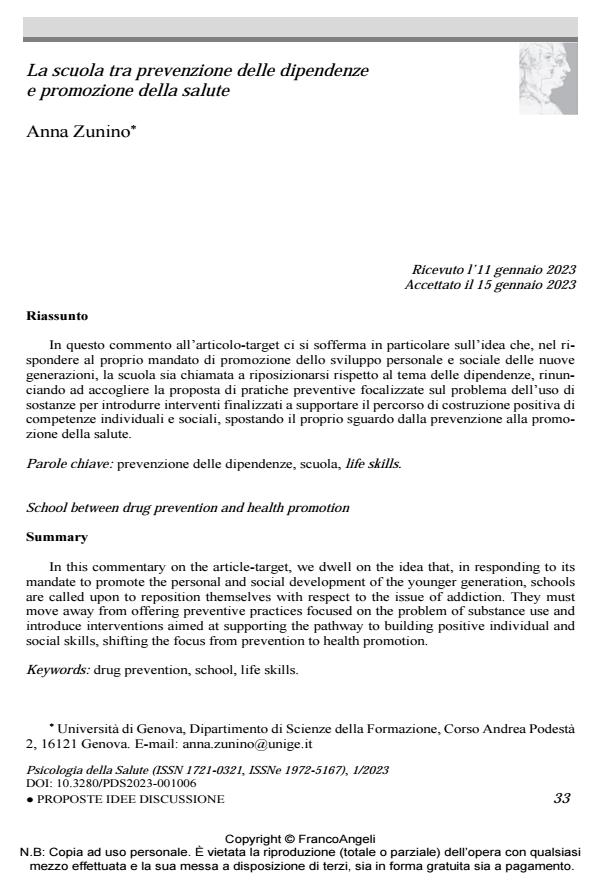School between drug prevention and health promotion
Journal title PSICOLOGIA DELLA SALUTE
Author/s Anna Zunino
Publishing Year 2023 Issue 2023/1
Language Italian Pages 8 P. 33-40 File size 199 KB
DOI 10.3280/PDS2023-001006
DOI is like a bar code for intellectual property: to have more infomation
click here
Below, you can see the article first page
If you want to buy this article in PDF format, you can do it, following the instructions to buy download credits

FrancoAngeli is member of Publishers International Linking Association, Inc (PILA), a not-for-profit association which run the CrossRef service enabling links to and from online scholarly content.
In this commentary on the article-target, we dwell on the idea that, in responding to its mandate to promote the personal and social development of the younger generation, schools are called upon to reposition themselves with respect to the issue of addiction. They must move away from offering preventive practices focused on the problem of substance use and introduce interventions aimed at sup-porting the pathway to building positive individual and social skills, shifting the focus from prevention to health promotion.
Keywords: drug prevention, school, life skills.
Anna Zunino, La scuola tra prevenzione delle dipendenze e promozione della salute in "PSICOLOGIA DELLA SALUTE" 1/2023, pp 33-40, DOI: 10.3280/PDS2023-001006